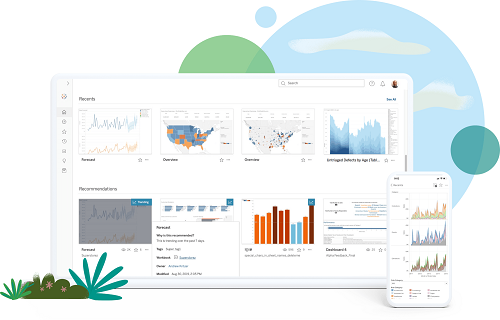Powerful computing is in the hands of everyone across enterprise. But, until now, analysing the business and making decisions relied on a select few highly skilled data scientists.
To keep up with the pace of change, businesses required data analytics to be in the hands of everyone across the organisation in much the same way as computing is. The latest innovations in artificial intelligence (AI) and machine learning (ML) have done just that, providing the enterprise with an analytical view of the business that is as simple and powerful as the technology we all use in our daily working lives. We call this Tableau Business Science a derivative of data science that is aligned with the needs of the business.
The pace of change that business leaders are navigating requires rapid decision-making, but decision-making based on data ensures accuracy. Organisations wanting to move to data-centric decision-making have been inhibited by data science projects that do not scale due to a lack of available data skills or technology that cannot deliver data analytics at the pace the business requires.
Tableau has seen a large number of data science proof of concepts (POC) that are expensive, deeply technical, and cannot iteratively develop. This leads to POCs becoming yet another data silo in the organisation.
The challenge for many organisations is that data science cannot scale at speed, so a new approach is required, one that puts the pace and demands of business first and uses machine learning technology to harness the data.
What is business science?
Business science recognizes that organisations have hundreds of decisions that need to be made using data. Often the organisation has a small data science team, which is tasked with specific analytical outcomes. As with so much in business, there is a degree of compromise required, and Tableau Business Science delivers that trade-off, providing fast results so the business can act without the delays that high precision often creates.
Tableau Business Science uses AI and ML to provide the services and tools that have typically been the reserve of data scientists. This ensures decision-making can be done simply and with speed. Tableau Business Science can be embedded into the workflows of decision-making as it is taking place.
Business science is not a replacement for data science. Nor is business science any less correct; the difference is the type of analysis. A business science user typically needs to see and act on a behaviour or a cluster of actions in the marketplace so that they are aware that something is happening to the organisation, and they need to respond. Data science will lead to the answer as to why it happened, but typically sometime after the event has taken place.
Business science puts data science into the hands of those in your organisation with domain expertise, combining their skills with data analytics. This leads to faster and smarter decision-making through the context that domain experts have; Tableau Business Science provides data analytics to help domain experts find the solution to their business problems.
Tableau sees that the adoption of business science leads to increased analysis as teams and individuals explore predictions or scenarios. The organisation is also secure in the knowledge that Tableau Business Science uses no-code, with built-in governance to protect data and the single source of truth that navigates the organisation.
Data Science
What does this mean for data science? Data science is all about correctness, and it has to be; data science is directing precision medicine and self-driving vehicles - in these, we all demand absolute accuracy. Iterative development cycles in data science, therefore, have to be slow.
In the modern enterprise, business science and data science will - and must - coexist. One is tasked with deep and longer-term impact analysis. Business science brings the abilities of data science to the speed and pace demanded by digital business. Organisations that adopt both will be able to respond to the here and now, as well as the challenges of the future.






